OOCC Resource Hub Data Page
This page contains opioid data resources that can help guide response efforts in Maryland. Non-public pages may contain preliminary data that is not intended for publication. Final counts may vary.
- Overdose Fatality Reports (MDH)
Reports on overdose fatalities are prepared by the Vital Statistics Administration and publicly available on the Department of Health’s Behavioral Health Administration website. Reports include annual and quarterly data on overdose fatality by substance and jurisdiction.
- Who can have access? Publicly accessible to all.
|
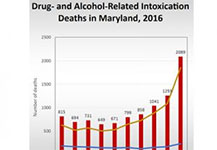 |
- U.S. Drug Poisoning Mortality Dashboard (CDC-NCHS)
The National Center for Health Statistics provides a publicly available dashboard on the CDC website. The interactive dashboard presents drug poisoning deaths in the U.S. at the national, state, and county levels from 1999-present.
- Who can have access? Publicly accessible to all.
|
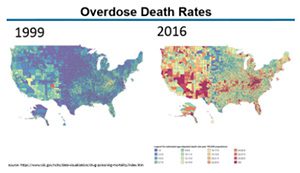 |
- Overdose Hospital Events Dashboard (MDH-BHA/CRISP)
The CRISP Overdose Hospital Events Dashboard is an interactive platform that uses hospital data to show trends in overdoses across Maryland. The Overdose Hospital Events Dashboard can demonstrate areas of need by demographics, substance of interest, local jurisdiction, and zip code. The Overdose Dashboard is hosted jointly with the PDMP Dashboard.
- Who can have access? Access is restricted to local health department personnel, as well as certain MDH staff and partners conducting public health planning, interventions or evaluation.
To request access or more information on the Overdose Hospital Events Dashboard, email [email protected]
|
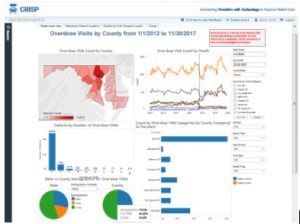 |
- PDMP Dashboard (MDH-BHA/CRISP)
The Prescription Drug Monitoring Program (PDMP) Dashboard is an interactive platform that uses PDMP data to show trends in prescribing and dispensing of controlled dangerous substances across Maryland. The PDMP Dashboard can demonstrate prescribing trends by jurisdiction of prescription recipient, demographic variables, and therapeutic class of interest.
- Who can have access? Access is restricted to local health department personnel as well as certain MDH staff and partners conducting public health planning, interventions or evaluation.
To request access or more information on the PDMP Dashboard, email [email protected]
|
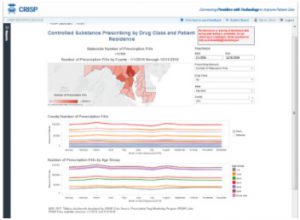 |
- ODMap (W/B HIDTA)
The Overdose Detection Map (ODMap) is a data sharing platform that uses law enforcement and EMS data to map and analyze overdose occurrence across Maryland in near real-time. Overdose locations can be viewed on an interactive map, and enrolled partners can receive regular reports and alerts to spikes in their jurisdictions.
|
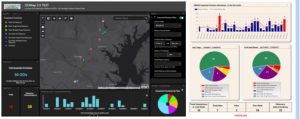 |
- Other Useful Data Resources
|
|









